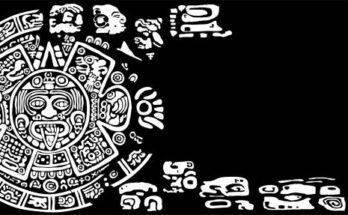In the 21st century, a new kind of religion has emerged, one that doesn’t involve temples, gods, or ancient scriptures. Instead, it revolves around the worship of technology and the modern tribal practices that have evolved alongside it. The rapid advancement of technology has given rise to a digital age where people form tribes around shared interests, beliefs, and the devices they use. This article explores the emergence of the religion of technology, examining how modern tribal practices have become an integral part of our lives.
The Rise of the Tech Tribe
 (Photo from iStock)
(Photo from iStock)
In the past, religious affiliations and tribal connections were often based on geographical location, ethnicity, or shared cultural practices. However, in the digital era, the landscape of human connection has shifted. With the advent of the internet and social media, people are now forming tribes based on their interaction with technology. These tech tribes transcend physical boundaries and bring together individuals who share a common passion for specific devices, operating systems, or digital platforms.
One of the most notable tech tribes is the Apple community. The followers of Apple products, often referred to as “Apple enthusiasts” or “Mac devotees,” form a distinct tribe with its own rituals, symbols, and even pilgrimages. The annual Apple product launches serve as religious ceremonies, where followers eagerly anticipate the unveiling of the latest gadgets. The Apple logo becomes a sacred symbol, and the pilgrimage to Apple stores on launch days mirrors the journey of religious pilgrims.
Similarly, the Android community forms another tech tribe. The rivalry between Apple and Android users often takes on a tribalistic fervour, with each group staunchly defending its chosen platform. The debates and discussions within these tribes resemble theological debates, where followers passionately advocate for the superiority of their chosen technology.
Social Media as the New Place of Worship
In the religion of technology, social media platforms act as virtual temples where followers gather to express their devotion. Likes, shares, and comments serve as a form of digital worship, reinforcing the sense of belonging within the tech tribe. Social media has become a space for the exchange of digital prayers – in the form of memes, hashtags, and viral challenges – that strengthen the bonds between tribe members.
The influence of social media extends beyond personal connections to shape public opinion and cultural norms. Tech influencers, akin to religious leaders, emerge as charismatic figures guiding their followers through the ever-evolving landscape of technology. Their recommendations and endorsements carry significant weight, further solidifying the tribalistic nature of the religion of technology.
The Cult of Innovation
 (Photo from iStock)
(Photo from iStock)
In the religion of technology, innovation is revered as a sacred concept. Technological advancements are celebrated not just as progress but as milestones in the evolution of the tech tribe. The launch of a ground-breaking device or the introduction of a revolutionary feature is akin to a religious revelation, generating excitement and anticipation among the followers.
Companies like Tesla and SpaceX, led by visionary entrepreneur Elon Musk, have gained a cult-like following. Musk, often regarded as a tech messiah, is at the forefront of pushing the boundaries of innovation. His endeavours are followed with a fervour similar to the way religious leaders are revered, with his speeches and product launches resembling charismatic sermons that captivate the masses.
The Rituals of Consumption
In the religion of technology, the act of consumption becomes a ritualistic practice. The purchase of a new device is not merely a transaction but a rite of passage, signifying one’s commitment to the tech tribe. The unboxing of a new gadget is a ceremonial act, with enthusiasts documenting and sharing the experience on social media, inviting others to partake in the ritual.
Moreover, planned obsolescence – the intentional design of products to have a limited lifespan – plays a role in sustaining the cycle of consumption within the tech tribe. Upgrading to the latest model is not just a desire but a societal expectation, reinforcing the continuous cycle of ritualistic consumption.
Privacy and Sacrifice in the Digital Age
 (Photo from iStock)
(Photo from iStock)
As technology advances, the boundaries between the private and public spheres blur. In the religion of technology, the sacrifice of personal privacy becomes a necessary offering to the digital gods. The constant connectivity facilitated by smartphones and smart devices requires individuals to surrender aspects of their lives to the digital realm.
Tech companies, in turn, collect and monetize this data, creating a symbiotic relationship where followers sacrifice privacy in exchange for the convenience and connectivity that technology provides. The acceptance of surveillance and data collection becomes a form of devotion, reinforcing the tribal bonds within the tech community.
The Dark Side of Tech Tribalism
While the religion of technology has brought about connectivity and shared experiences, it also has a dark side. Tech tribalism can lead to exclusion and hostility towards those outside the tribe. Online forums and social media platforms often witness heated debates. Name-calling, and even harassment as tribes clash over their preferred technologies.
The intense loyalty to a particular brand or platform can lead to a closed-minded approach. Preventing individuals from objectively evaluating alternatives. This tribalistic mentality can hinder innovation and stifle healthy competition. Further, as blind devotion to a specific tech tribe may prevent followers from embracing advancements from other communities.
Moreover, the rapid pace of technological evolution contributes to a sense of obsolescence anxiety within the tech tribe. The fear of being left behind or using outdated technology can lead to constant upgrading. Evidently, a relentless pursuit of the latest gadgets, contributing to a culture of overconsumption and environmental concerns.
Conclusion
The religion of technology and its modern tribal practices have become an integral part of contemporary society. The emergence of tech tribes. The worship of innovation, and the rituals of consumption have reshaped the way we connect, communicate. And interact with the world. While the sense of community and shared passion within tech tribes can be uplifting. It is essential to navigate the digital landscape with a mindful approach.
As we continue to integrate technology into every aspect of our lives. It is crucial to strike a balance between our digital and physical existences. The religion of technology should not overshadow the values of empathy, inclusivity, and open-mindedness. Eventually, by understanding the tribal dynamics at play in the digital age. We can foster a healthier relationship with technology. Moreover, ensure that our collective worship. Of innovation does not come at the expense of human connection and well-being.




